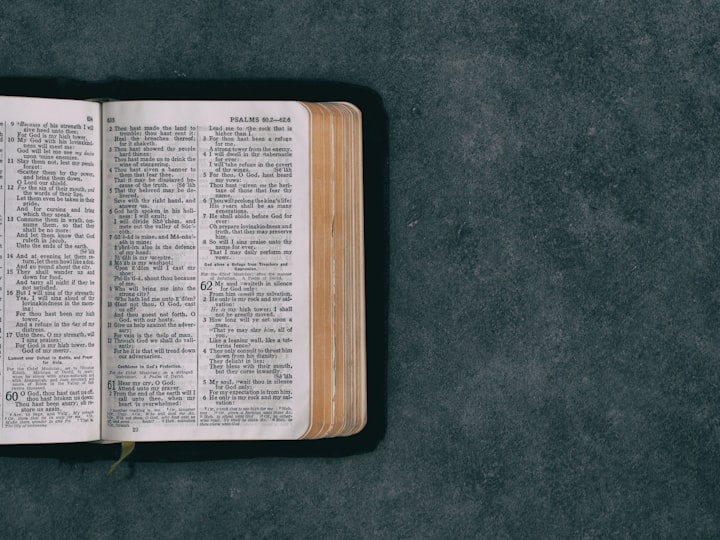
The Bible sometimes called the Holy Bible or the Authorized Version, is a collection of many religious writings of Judaism and Christianity, which together comprise the Old Testament and The New Testament, which is also called the Traditions. The word Bible also comes from the Greek erythro-kata, erythro meaning "to divide into two" and kata meaning "law" or "rule." The Bible is also referred to as the Canon which consists of the writings of men called the Canon, who wrote between the third and thirteenth centuries.
The bible contains forty-eight books, including the four traditional sacred writings, the two gospels of Matthew and Mark, and the Book of Revelation. The most important bible writings, or parts of the bible, are the Holy Bible and the Hebrews. The Holy Bible consists of twenty-one books or sections, while the Hebraic Bible comprises twelve sections or books. The Jews, who believe that there is only one true path to God, have never accepted the canon of the Bible.
The Old Testament, which includes the Old Testament of the Jews and the New Testament of Christians, comprises the books of Moses, the Ten Commandments, the Torah, and the Praise of Israel. The New Testament books include the Gospel of Luke, the Gospel of Matthew, and the Bible's Epistle to the Hebrews. Most of the people today accept the entire Old Testament and accept the New Testament, which was written by the apostles. The New Testament books contain all the books written by the authors of the New Testament, and they are also considered the written Word of God.
The main idea of the Christian religion is that the bible contains only the infallible word of God, which is available for everyone to use. The beliefs of Christians differ from those of the Jewish people. They believe that the bible contains only the inspired word of God, without any errors. They also believe that the bible contains absolute truth, and that everyone should read it, including the non-believers. Unlike the followers of Judaism and the early church fathers, the followers of Christianity believe that the Holy Bible contains absolute truth.
The most popular version of the Christian Bible is the Greek New Testament, also known as the Latin Bible or the Vulgate translated by St. Jerome from Greek and Hebrew to Latin. Or thereafter in 16th Century Protestant Bible King James Bible. This is the oldest version of the Bible that is still in existence today. The English Bible and the German Bible are versions of the original twelve books of the Old Testament. These translations are very popular due to their flawless accuracy, unlike the modern bibles that contain errors due to mistranslation, omission, and translation problems.
Most scholars believe that the root meaning of the majority of the Greek words in the New Testament (New Testament Greek) actually derive from two areas of the original text. One place these words originated is in the epilogue written by the first-born Jesus to the mother of Him in the gospel letter the birth of Jesus. In this epilogue, Christ declared himself to be the son of God according to the Hebrew law, while claiming his father was God. According to the modern translations, Christ explicitly declares that he is the son of God in the Greek New Testament, while the Hebrew Testament version omits this passage completely, while the Versa Major version includes it.
Another place the English Bible and the German Bible derive from the original text is in John Wycliffe's translation of the Old Testament. Wycliffe was a very important figure in the early church. He created many Bible versions and made corrections and changes to the traditional versions, such as the Greek New Testament and the Protestant Bible. He also created several English versions of the Old Testament that are very similar to the translators who produce the Modern English Bible.
The modern era of translation has produced numerous English translations of the Bible. Most of these translations include a Greek or Hebrew version of the Old Testament, as well as one or more Greek and Hebrew translations of the New Testament. The New Testament in its entirety forms the Greek/Hebrew interlinear Bible.
x
About the Creator
Susanna Flavius
Art Buffer Artist @ 'https://www.artpal.com/susjuly'






Comments
There are no comments for this story
Be the first to respond and start the conversation.